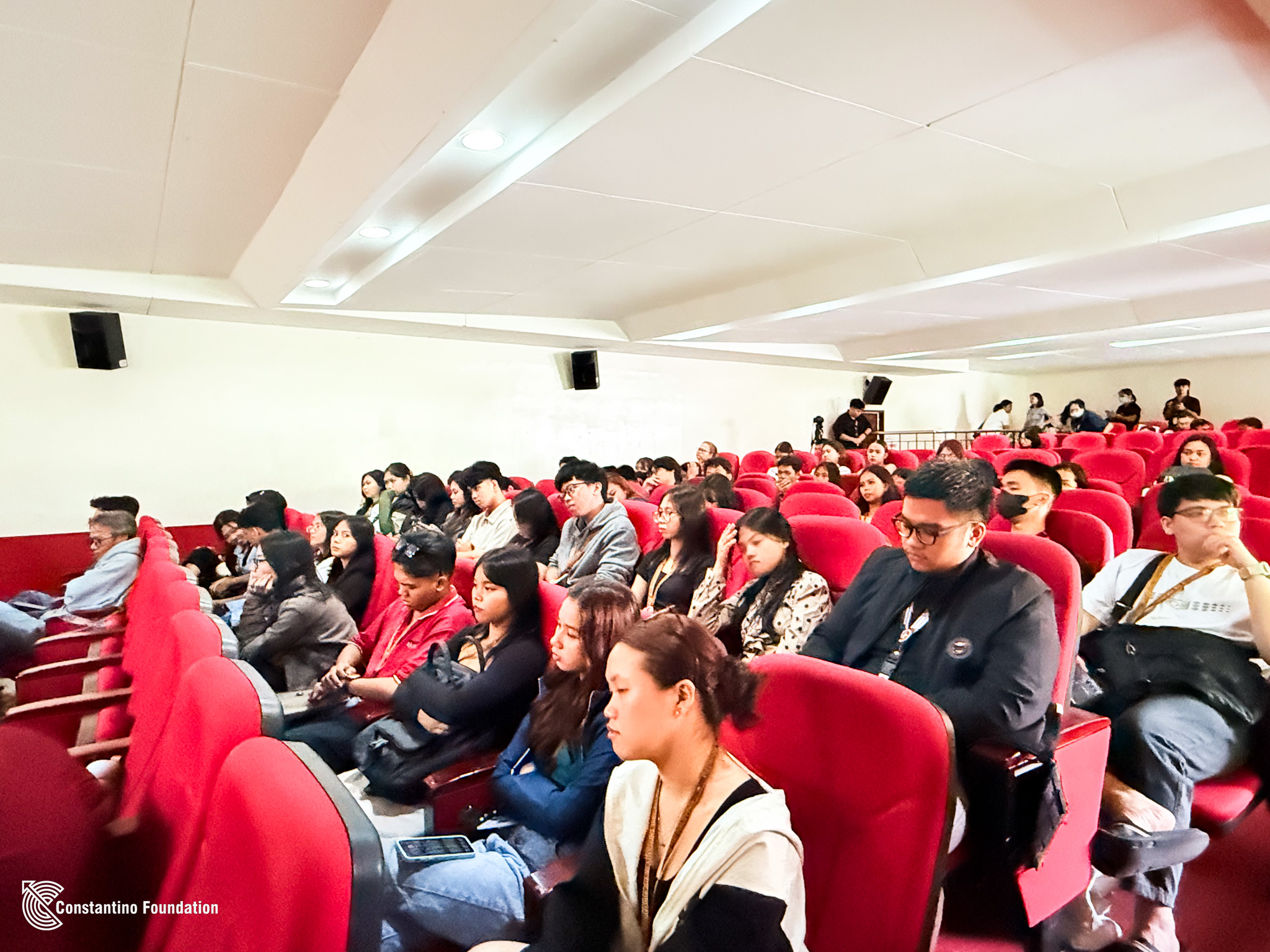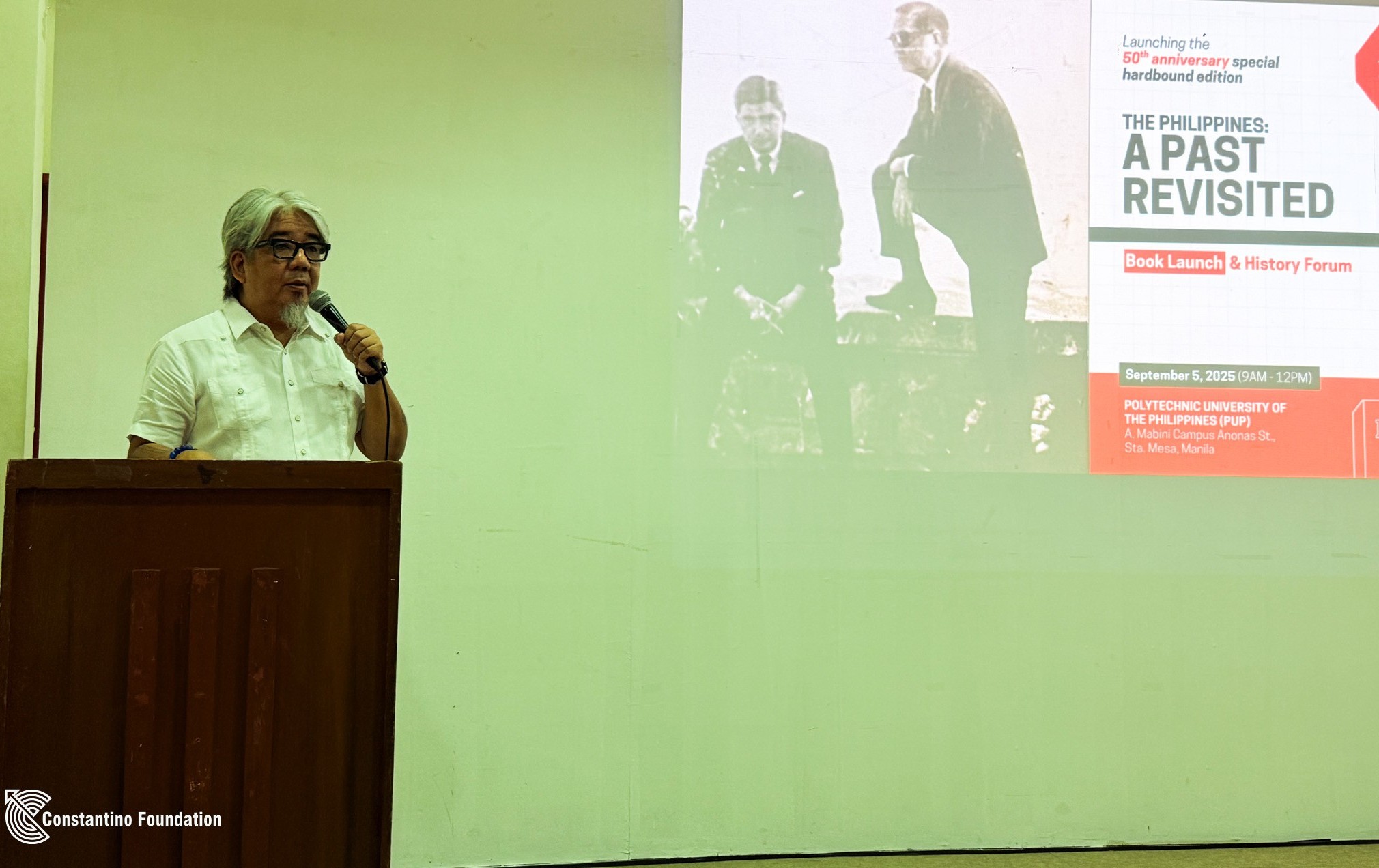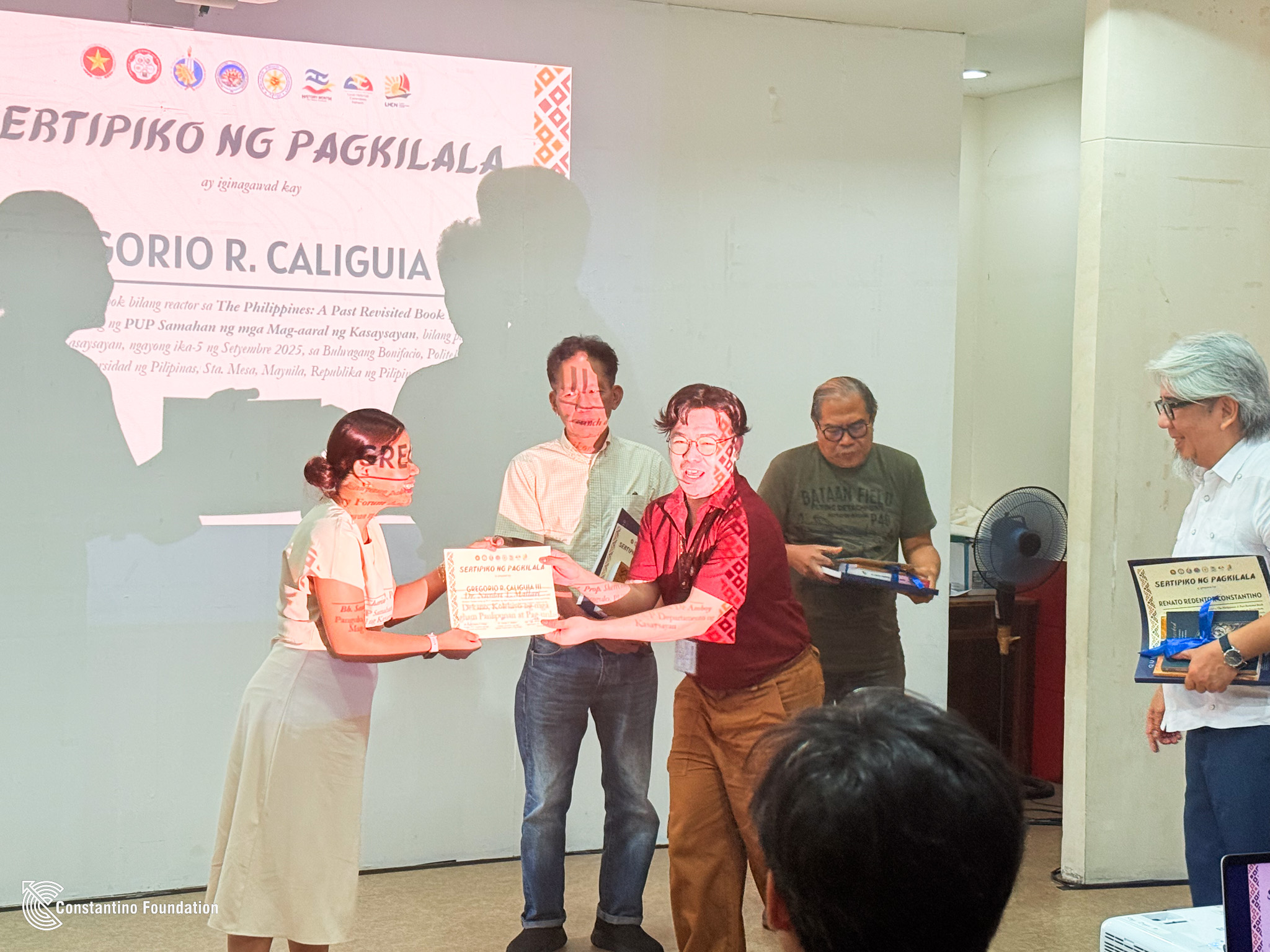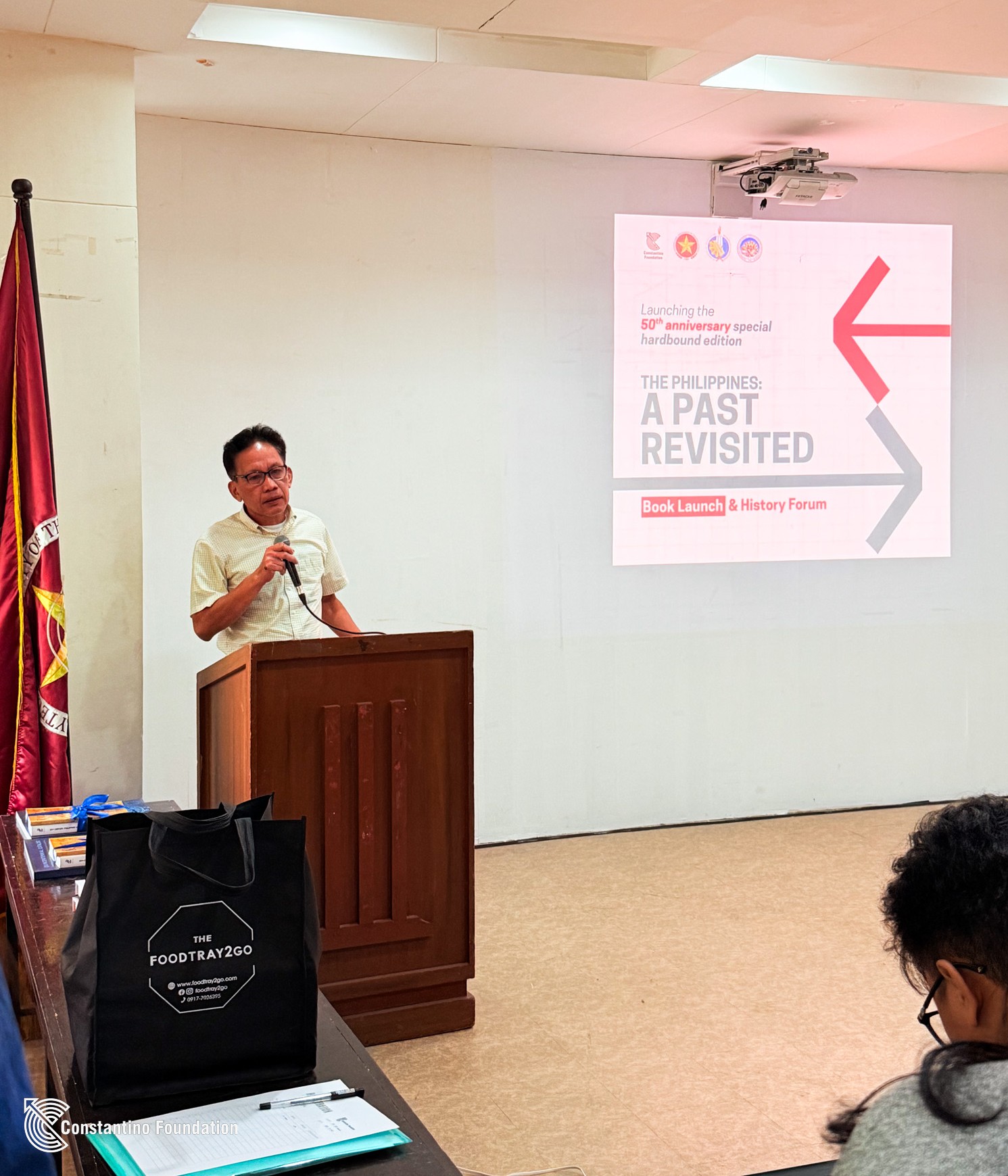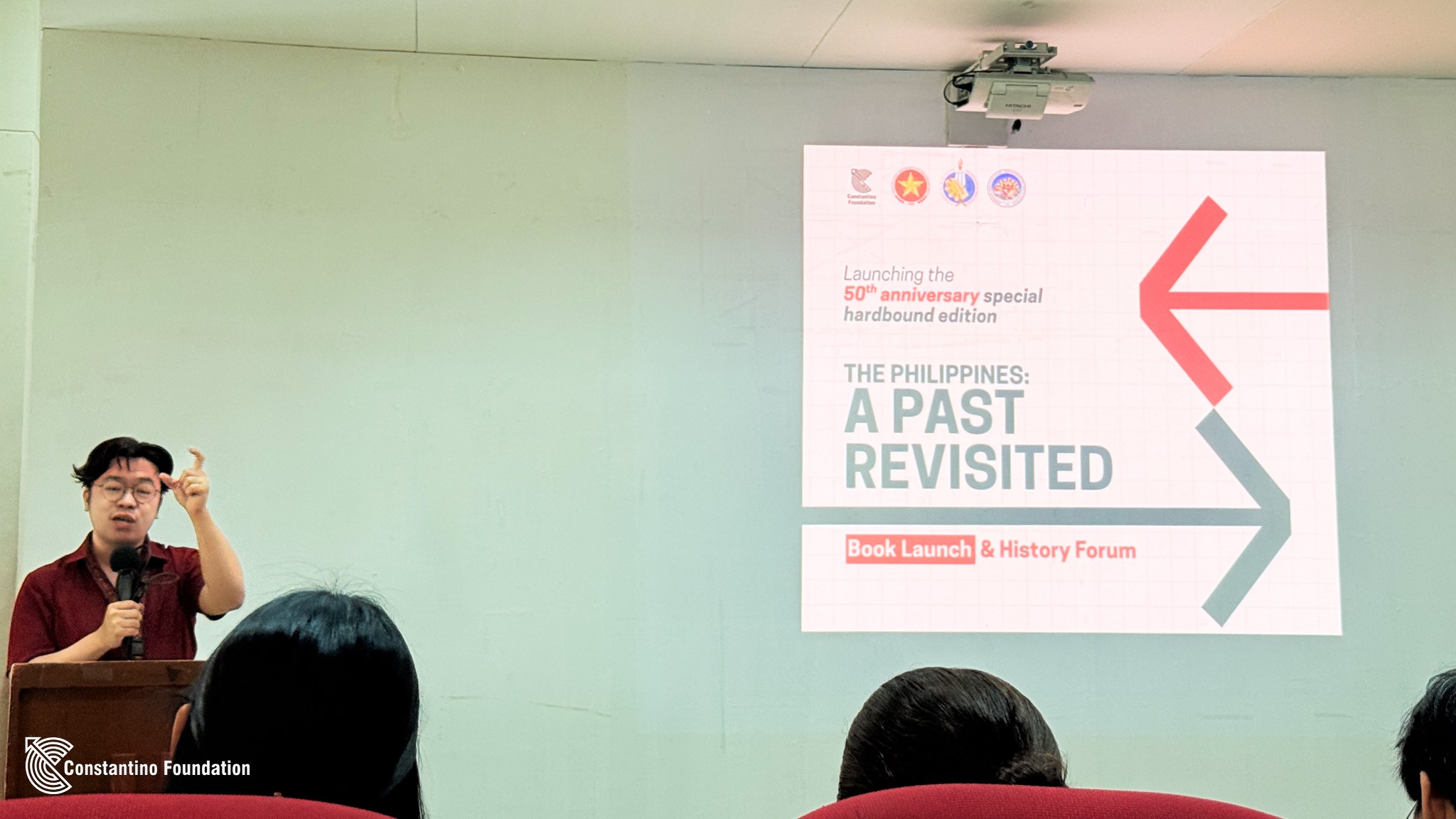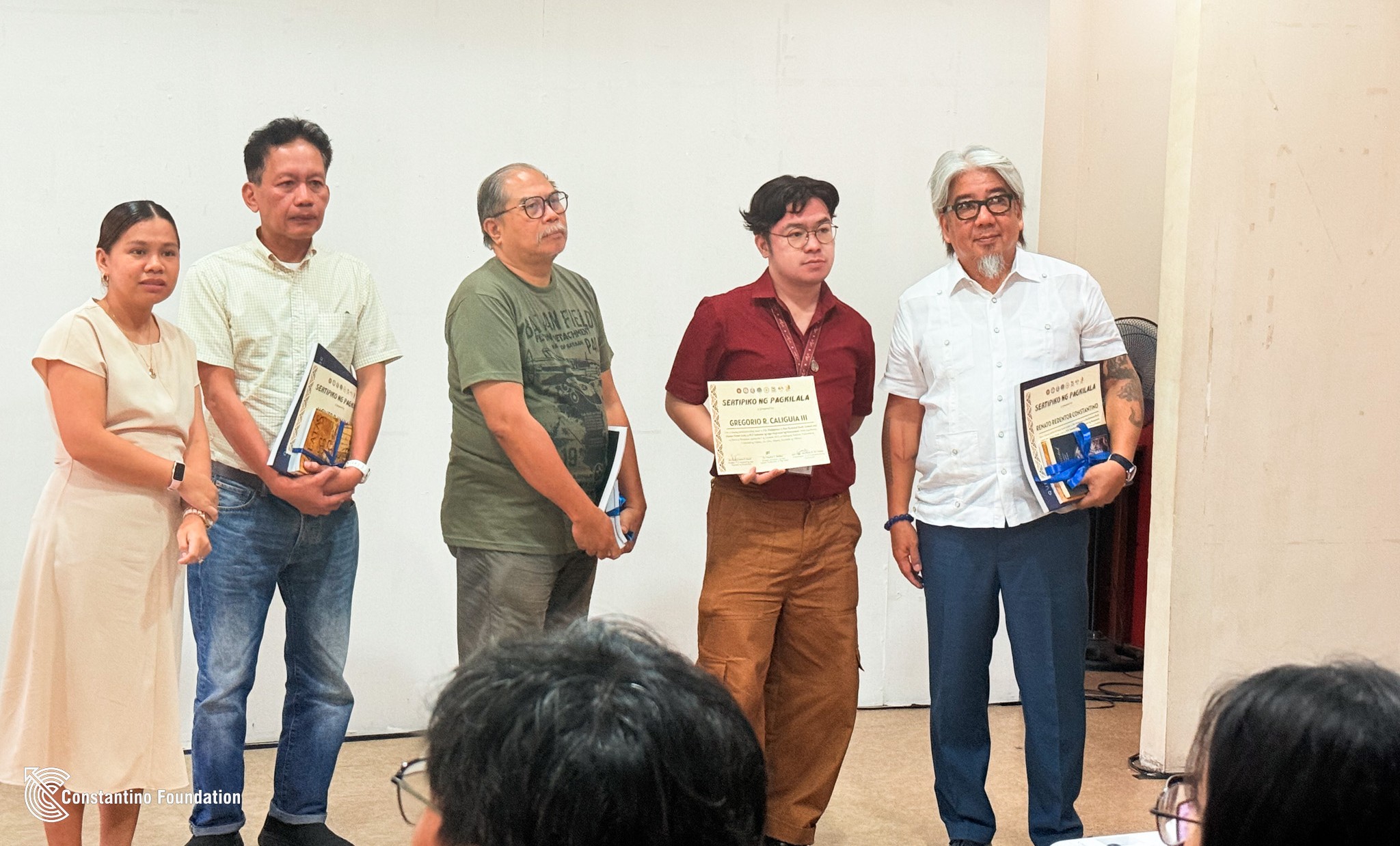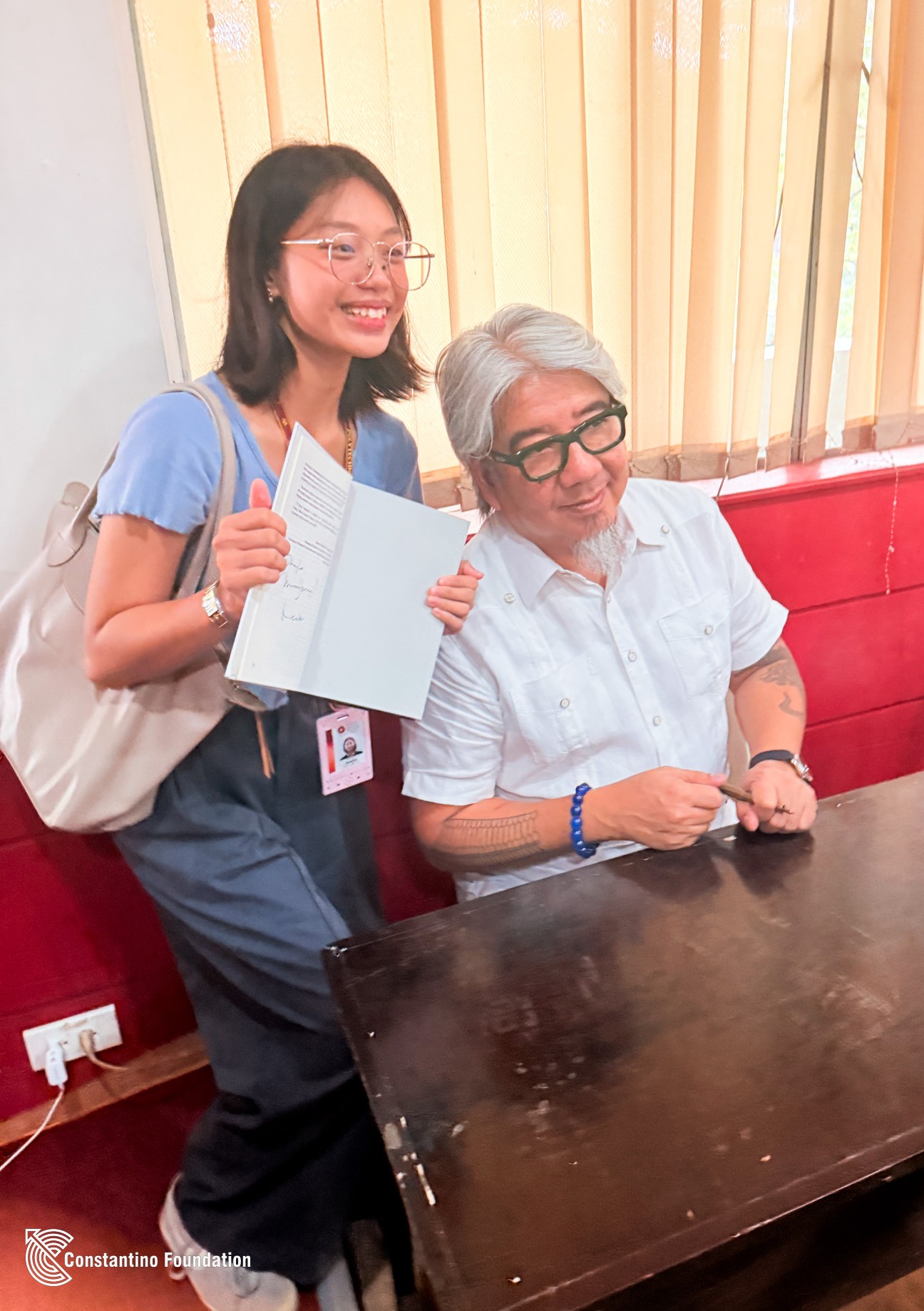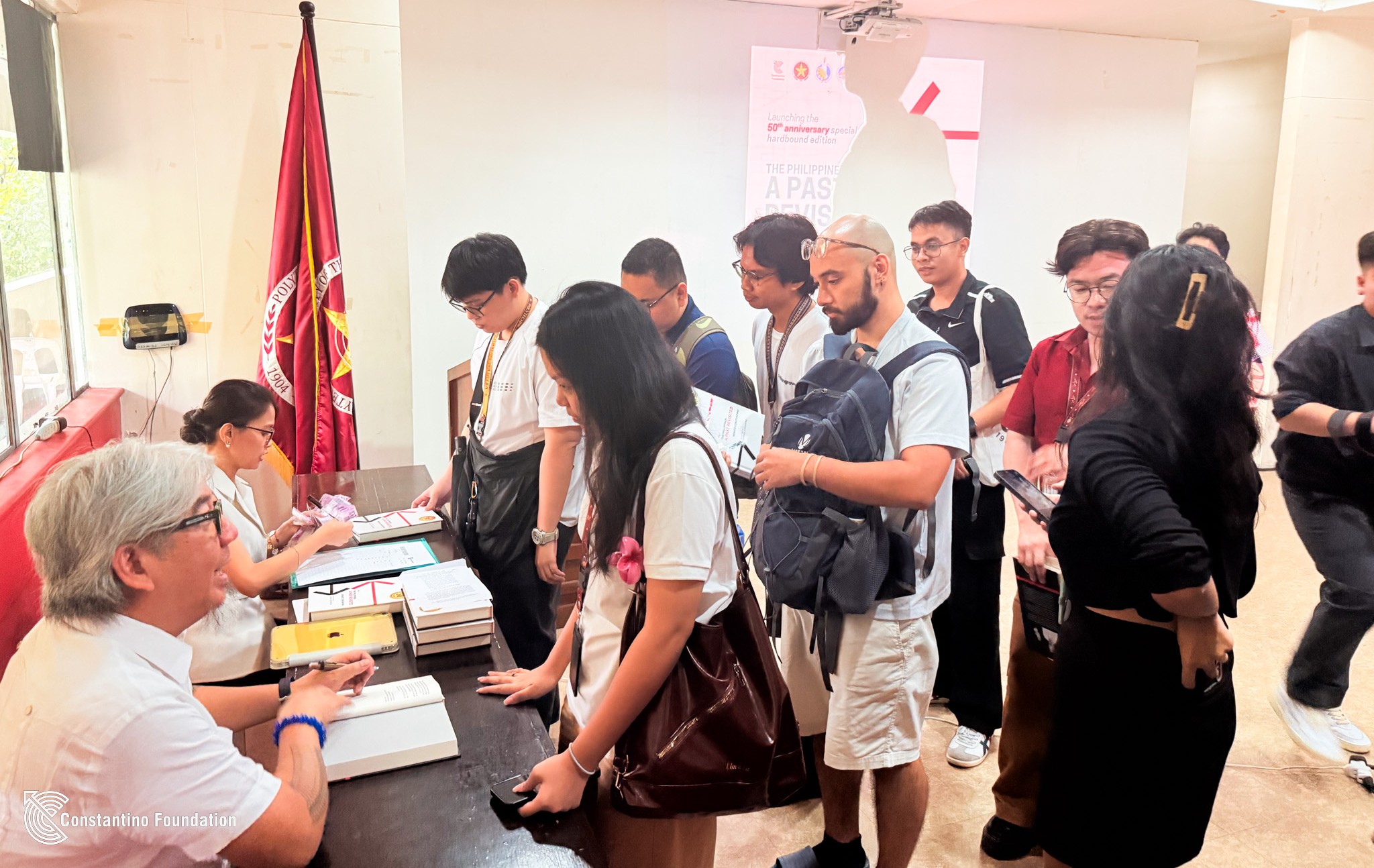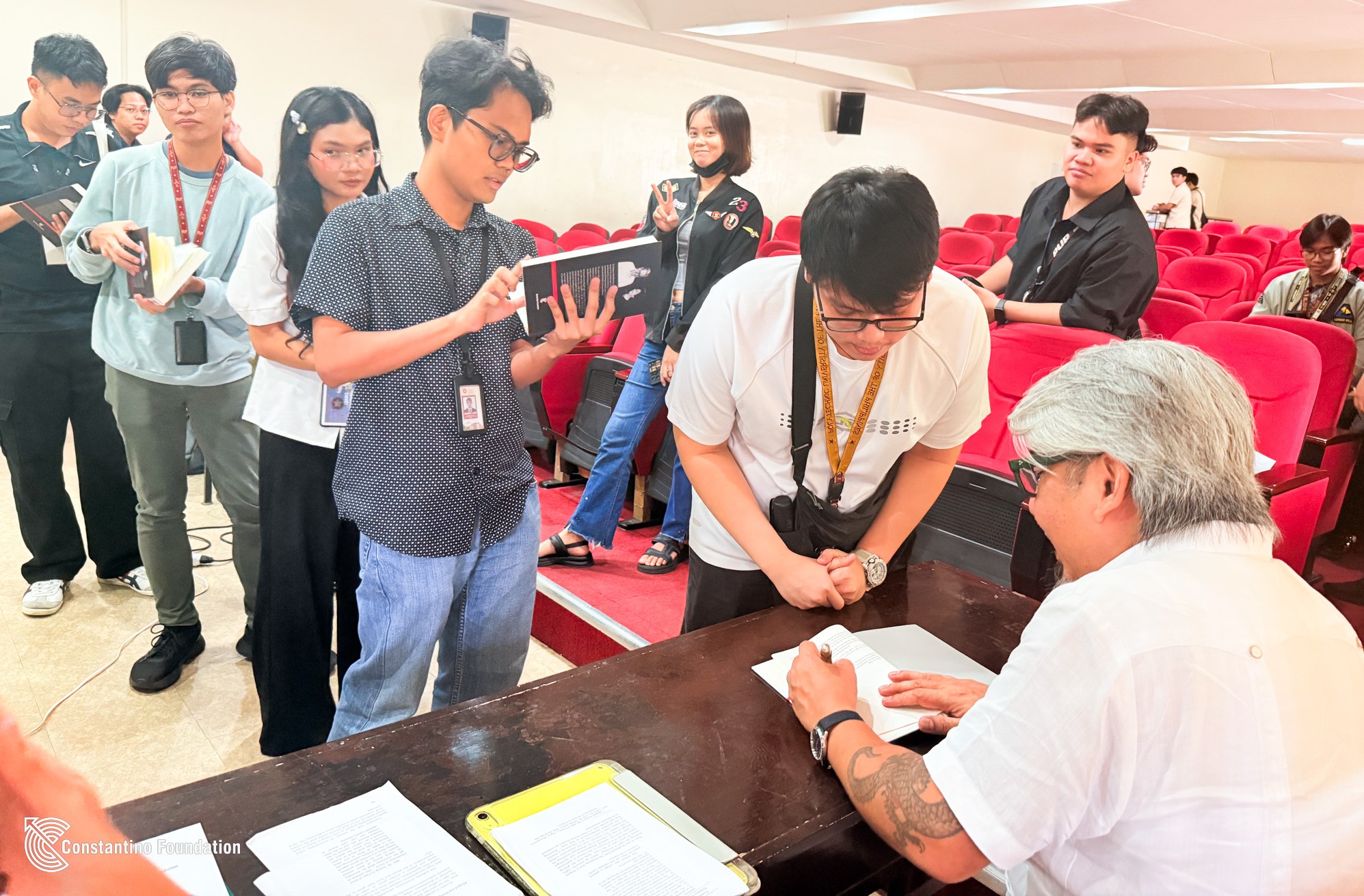by Rica Dominguez | September 9, 2025
The enduring influence of The Philippines: A Past Revisited (APR) by Letizia Roxas Constantino and Renato Constantino was celebrated in a special book launch held at the Polytechnic University of the Philippines (PUP) as part of the Research Colloquium of the PUP Department of History and the PUP Samahan ng Mag-aaral ng Kasaysayan. Nearly 50 years since it was first published, the book continues to resonate with new generations, reaffirming its place as one of the most important works in Philippine historiography.
The program began with a solidarity message from Dean Nick Mallari, which was warmly delivered on his behalf by Chairperson Sherrenne de Amboy, setting the tone of collective reflection and intellectual engagement. Following this, Renato Redentor Constantino, Managing Director of Constantino Foundation and grandson of Renato and Letizia Roxas Constantino, officially opened the program. In his remarks, he shared reflections on the iIntroduction he wrote for the 50th Anniversary Edition of APR, connecting lessons of the past to pressing global challenges such as the climate crisis. He explained how the struggle for survival and sovereignty, which his grandparents documented in their works, remains deeply relevant in today’s fight for environmental justice. He also spoke tenderly about Renato and Letizia’s love story, reminding the audience that their scholarship was born from both intellectual rigor and personal devotion—a union of passion for each other and for the Filipino people.
The discussion continued with Professor Joseph Valilla, who offered a comprehensive review of A Past Revisited. He described the book as a “must-read” for his students, praising it for dismantling colonial-centered histories and restoring Filipinos as the central actors of their own story. For Valilla, the text is not only a historical account but also a guide that develops critical thinking, civic responsibility, and national identity among its readers. Valilla said APR should be used “as a mirror, a hammer, and a torch” because the book provides the reader a reflection of who they really are with their country as backdrop, because it can be used as a weapon or an instrument to build, and because in dark times the book will shine a light to help us find our way.
Meanwhile, Professor Bernard Karganilla provided a more personal dimension by sharing stories about Renato Constantino, including the author’s experience during World War II. The anecdotes revealed how Constantino’s lived experiences during the turbulent period shaped his perspective as a historian and gave his later writings a profound sense of authenticity. Through these stories, the audience gained a deeper appreciation of how personal memory and national history are often intertwined.
Adding another perspective, Professor Gio Caliguia delivered a thoughtful reaction to the book. He highlighted how A Past Revisited challenges readers to interrogate dominant narratives and fosters dialogue that transcends generations. For him, Constantinos’ work is not simply a chronicle of the past but a living text that demands engagement, critique, and reflection from every reader. Prof. Caliguia said the larger narrative offered by APR was necessary so that the reader can locate and put into context other sources of national and local memory. This then encourages readers to question not only all the text they read, including APR, but more importantly the larger realities they are confronting today as well.
The program closed with an engaging open forum, where students eagerly asked how they could access more of Constantinos’ books and further expand their knowledge of Philippine history. Their questions demonstrated a sincere desire to carry forward the spirit of inquiry that the Constantinos instilled through their scholarship.
As the event showed, The Philippines: A Past Revisited is far more than a historical text. It is a legacy of love, resistance, and empowerment that continues to inspire. Through the voices of speakers such as Renato Redentor Constantino, Prof. Valilla, Prof. Karganilla, and Prof. Gio Caliguia, the program reaffirmed that the Constantinos’ work remains vital, even five decades after it first came out, to understand the past better, to navigate the present, and to consciously shape a Filipino future that honors our ancestors and which enables the youth of today. Photo courtesy of Rica Dominguez/Constantino Foundation.


